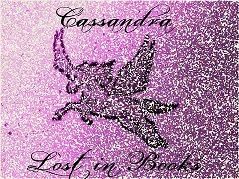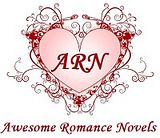I’ve been spending my evenings going over my older novels, making corrections on typos that either I have found or readers have (kindly) pointed out. The mistakes are fairly common and therefore embarrassing, particularly since I consider myself to be a literate person. I know the difference between there, their and they’re.(See? That’s a mistake right there since between refers to two. Among should be used for three or more!) And yet my fumbling fingers aren’t nearly as literate as my brain. I’m happy to say that as I’ve progressed, my books hold fewer mistakes. This is not necessarily an improvement of my writing or my typing skills. It is a result of several things I’ve learned in the Independent Author’s School of Hard Knocks. Some of you out there are testing your own skills as storytellers, so let me offer you a few things I’ve learned.
- A GOOD EDITOR IS A TREASURE Unfortunately, they can be expensive and many new authors, myself included, hesitate to spend family funds (or simply don’t have the funds) Save your pennies and get one as soon as you can afford one. You won’t be sorry.
- BETTER YOUR FRIENDS THAN STRANGERS Good Beta readers are essential. In the beginning, my Beta’s were good friends I trusted more for their support than their criticism, though I later learned they were capable of both. It’s a scary thing opening yourself up to the world and like many before me, I chose people who loved me and because they loved me, they were hesitant about hurting my feelings. I wanted a cheering squad, but what I needed was criticism. My beta readers now understand that it is kinder to be cruel with their highlighters and comments. They are invaluable and each reader will find a different set of mistakes. Do I always follow their advice? On spelling and grammar? Absolutely. On content? Not necessarily, but I always give their comments careful consideration and I always want to hear what they honestly think.
- BFFs CAN’T ALWAYS BE TRUSTED Sorry G, but it’s true. I discuss my writing with my BFF on an almost daily basis. I bounce ideas off of her and when I’m stuck on a plot point, talking to her helps me work out the kinks and puts me back on the right path. She knows my characters as well as I do. We talk about them as if they’re real people and because of this, she knows background information that the reader will never see. She’s read scenes that never made it into the book. This extra information can color what she reads in the final product. This means that she’s not always the right person to ask questions like, ‘Will the reader see Lorelei as I see her in this scene?’ since she knew and understood Lorelei long before that scene was written. For ‘Did I get my point across?’ questions, Beta readers who know nothing of the plot or character may have more reliable opinions.
- ALWAYS USE A HARD COPY For some reason, things look differently in hard copy than on a computer screen. I’ve said, ‘Wow! How the hell did I miss that one?’ more times than I can count when I read the hard copy.
- READ ALOUD Do it slowly. Your ears will pick up a lot of things your eyes don’t.
- YOU CAN’T WIN THEM ALL No matter how hard you try, mistakes will still occur. (I say this having just added the –ton to John Washing(ton)’s name. How the hell did we all miss that?) I’ve been finding errors in works by million dollar authors produced by multimillion dollar publishing houses with top notch editors. Personally, I blame it on modern technology. Those old time typesetters – I know a few – would catch more than a few typos when they set the type for a printed book. Where do you think the saying ‘Mind your ps and qs’ comes from?
- DO THE BEST YOU CAN AND KEEP LEARNING FROM YOUR MISTAKES.
Hope this helps.














Great insights from you. Thanks 🙂 RT @JRhoadesAuthor: : http://t.co/0bD4Vdl4bN